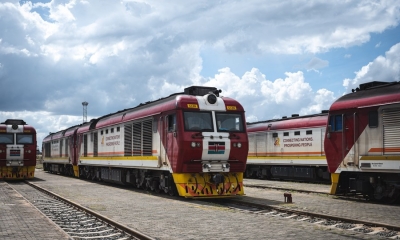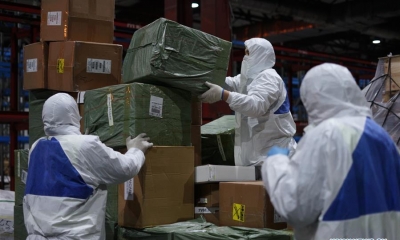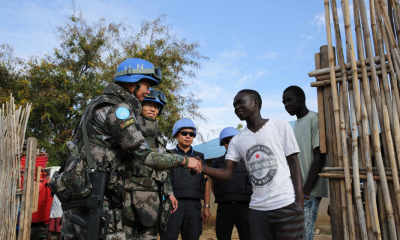Silencing the Guns
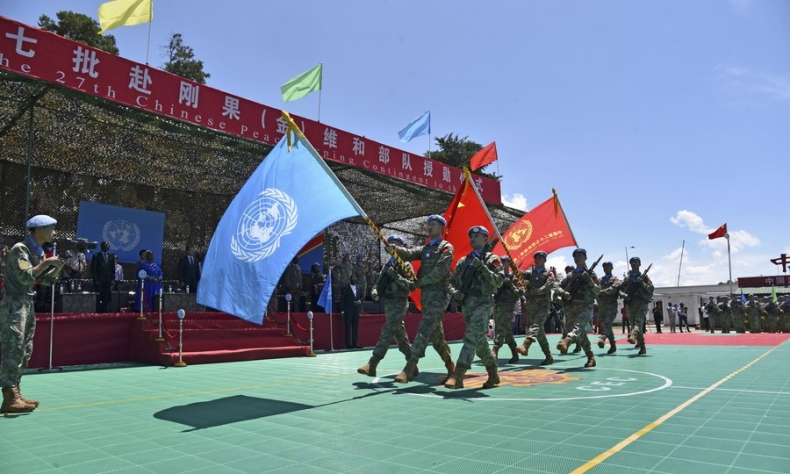
The vision of African countries to unite and strengthen their own efforts to ‘silence the guns in Africa by 2030’ is not unattainable or just a castle in the air.
The world in 2024 was far from peaceful. The conflict between Russia and Ukraine has persisted for over 1,000 days. Meanwhile, a new wave of violence in the Palestinian-Israeli conflict, ongoing for more than a year, spilled over into Lebanon, Iran, and even Syria.
Africa also faced new challenges to peace and security over the past year. Armed conflicts continued in various regions, particularly in the Horn of Africa, while terrorism and external interference exacerbated regional instability. These challenges made peace and security a crucial focus for African nations and an increasingly important aspect of China-Africa cooperation.
Complex challenges
Recent years have seen some positive developments in the Horn of Africa’s security landscape. For instance, Ethiopia and Eritrea achieved reconciliation in 2019, ending two decades of hostilities, and piracy in Somali waters has been effectively controlled. However, internal conflicts and tense inter-state relations persist in the region.
Ethiopia, Africa’s second most populous country, has experienced rapid industrialisation, becoming a leader in terms of development in the region. However, a failure in properly handling ethnic relations and power sharing led to conflict between the Ethiopian federal government and the Tigray People’s Liberation Front, a local force in the Tigray regional state, beginning November 2000. A ceasefire agreement was signed in Pretoria, South Africa, on 2 November 2022. However, shortly after the Tigray conflict ended, conflicts broke out between the Ethiopian federal government and the Amhara militias that had fought alongside it in the 2020-2022 Tigray war. Therefore, Ethiopia’s security situation remains volatile.
Sudan has remained unstable since the ousting of long-time ruler Omar al-Bashir in 2019. In April 2023, a devastating conflict erupted between the Sudanese Armed Forces and the paramilitary Rapid Support Forces, making the security situation worse.
In addition, disputes over Nile water resources and Ethiopia’s aspirations for Red Sea access have caused tensions among countries in the region. The long-standing disagreement among Ethiopia, Egypt and Sudan over the Grand Ethiopian Renaissance Dam remains unresolved, fuelling tensions.
Finally, in recent years, countries in the Sahel region of West Africa have seen a resurgence of military coups, and the terrorism problem has worsened. Military coups took place in Mali in August 2020 and May 2021, in Burkina Faso in January and September 2022 and in Guinea in September 2021, and there was an attempted coup in Guinea-Bissau in February 2022. Niger also saw a military-political change in July 2023. The factors leading to these military coups include the COVID-19 pandemic, livelihood crises caused, the intensification of terrorist activities, dissatisfaction of the coup soldiers with the previous regime (including the previous coup leaders), and the involvement of external forces.
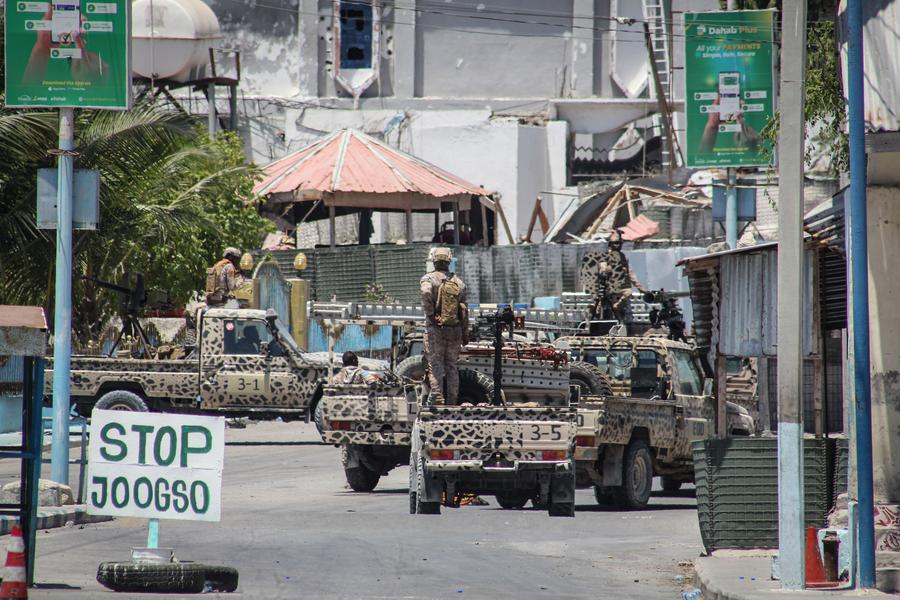
China’s contribution to peace
In April 2022, Chinese President Xi Jinping proposed the Global Security Initiative (GSI), which aims to eliminate the root causes of international conflicts and improve global security governance.
In February 2023, the Chinese government officially released the Global Security Initiative Concept Paper. The core concepts and principles of the paper include staying committed to: the vision of common, comprehensive, cooperative and sustainable security, respecting the sovereignty and territorial integrity of all countries, abiding by the purposes and principles of the UN Charter, taking the legitimate security concerns of all countries seriously, peacefully resolving differences and disputes between countries through dialogue and consultation, and maintaining security in both traditional and non-traditional domains.
The GSI reflects China’s continuous exploration of global security governance and is a positive response to the security challenges in today’s world. The GSI, with the support of over 100 countries and international and regional organisations, has been written into a number of bilateral and multilateral cooperation documents between China and other countries and international organisations.
Besides, China continues to strengthen security cooperation with African countries under the framework of the Forum on China-Africa Cooperation (FOCAC). Through its support for the holding of the Horn of Africa Peace Conferences, China made positive contributions to building consensus among all parties and promoting peace and security in Africa.
As China-Africa cooperation deepens and Africa’s security challenges worsen, the African Union and most African countries hope that China will increase its investment in Africa’s security field.
Therefore, since the fifth Ministerial Conference of FOCAC in 2012, China-Africa peace and security cooperation has become an important part of China-Africa cooperation. For example, the partnership initiative for common security was established during the Beijing Summit of FOCAC in September 2024. China announced it would join hands with Africa to establish and implement GSI partnerships, and build a demonstration zone of GSI. China will provide Africa with a 1-billion-yuan ($143-million) military grant to support to strengthen their armed forces, train 6,000 military personnel, and invite 500 young African military officers to visit China and conduct joint exercises, training, and patrols. China would deepen communication and cooperation with African countries on security for the Belt and Road Initiative projects. China would train 1,000 police enforcement officers for Africa and jointly ensure the safety of cooperation projects and personnel.
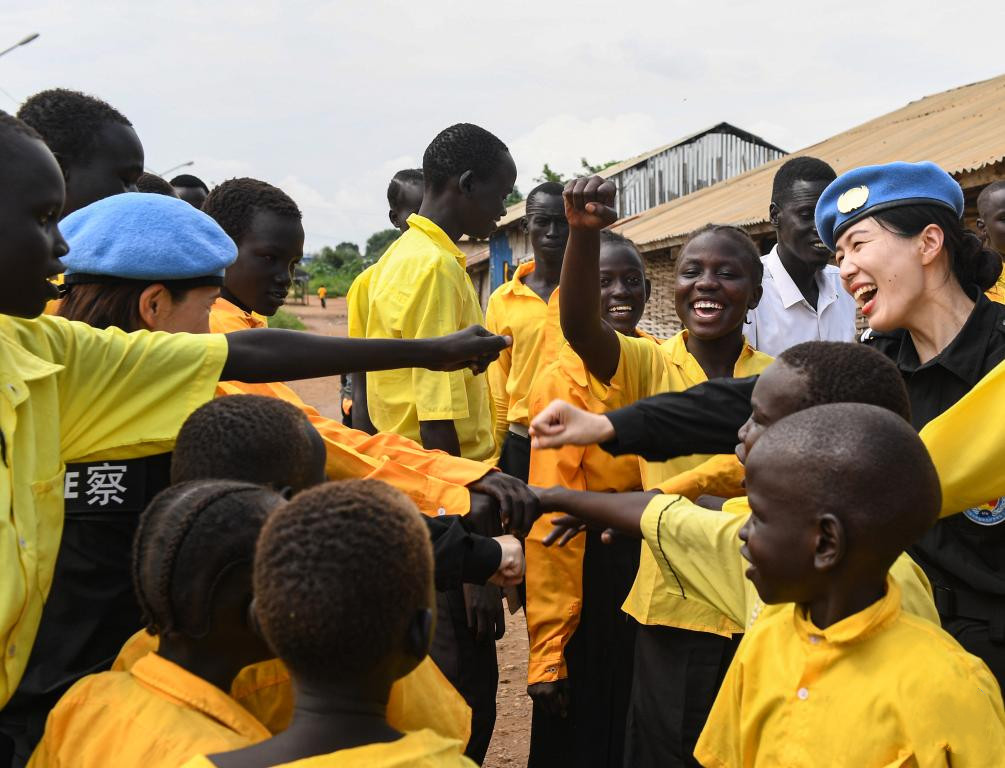
In 2022, China put forward the Outlook on Peace and Development in the Horn of Africa, and appointed a special envoy for the Horn of Africa affairs. In June 2022 and June 2024, two sessions of the Horn of Africa Peace Conference were convened by China in Addis Ababa, the capital of Ethiopia, and in Beijing. The conference allows Africans to take the initiative in resolving regional affairs and problems. Analysts have called this model China’s smart solution to improve security governance in the Horn of Africa, which will greatly contribute to the regional peaceful development process.
Prospects for 2025
Looking forward to 2025, if the global security situation continues to be grim, Africa’s external security environment is unlikely to improve significantly. As Donald Trump takes over American presidency, the geopolitical games among major powers are likely to intensify, rather than diminish. Due to the historical influence of Western colonialism and Africa’s serious shortage of peacekeeping funds and peacekeeping forces, many African countries are still highly dependent on external support in the security field. The vision put forward by African countries for “African solutions to African problems” and the efforts to solve security challenges through their own means will continue to face challenges from the attempts of some Western countries to intervene in and influence African security affairs through various means.
The internal security situation in many African countries remains fragile, with ongoing instability in the Horn of Africa and the Sahel region of West Africa. For example, the security situations in Ethiopia and the quasi “anti-Ethiopian alliance” of Somalia, Egypt, Eritrea deserve close attention. In addition, many African countries will hold presidential or parliamentary elections in 2025. These elections could trigger political unrest, as seen in Mozambique, a Southern African country, after its October 2024 elections. Party politics and democratic process on the continent have faced new challenges.
Despite these and other security challenges, the fundamental trend of improving peace and security in Africa remains intact. The African Union’s Agenda 2063 includes a vision of “a peaceful and secure Africa.” Since 2016, the number of UN-authorised peacekeeping operations in Africa has decreased, while African-led peacekeeping efforts have grown. This progress shows that the vision of African countries to unite and strengthen their own efforts to “silence the guns in Africa by 2030” is not unattainable or just a castle in the air.
 Facebook
Facebook
 Twitter
Twitter
 Linkedin
Linkedin
 Google +
Google +




